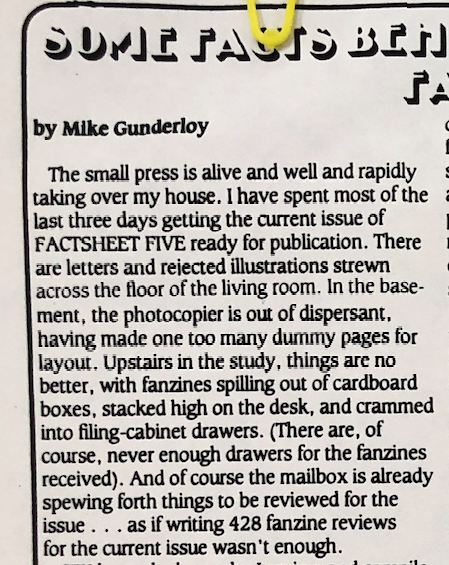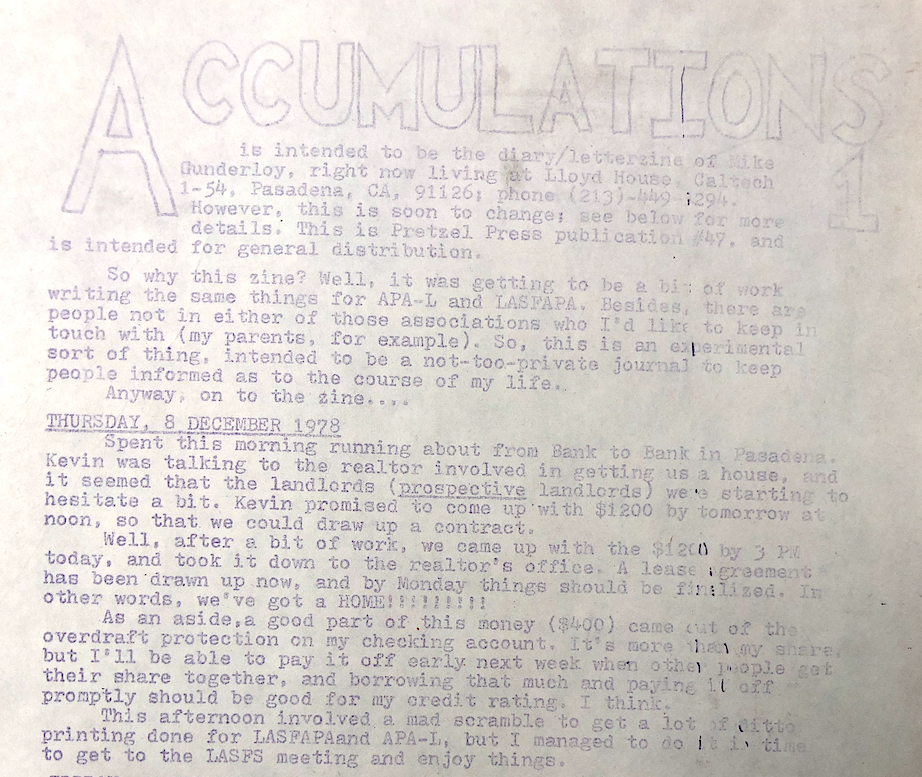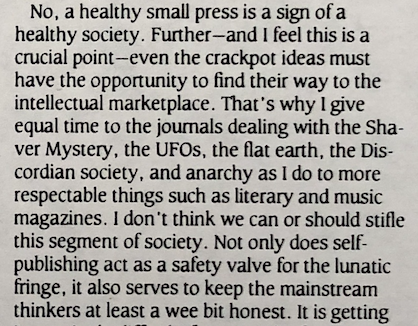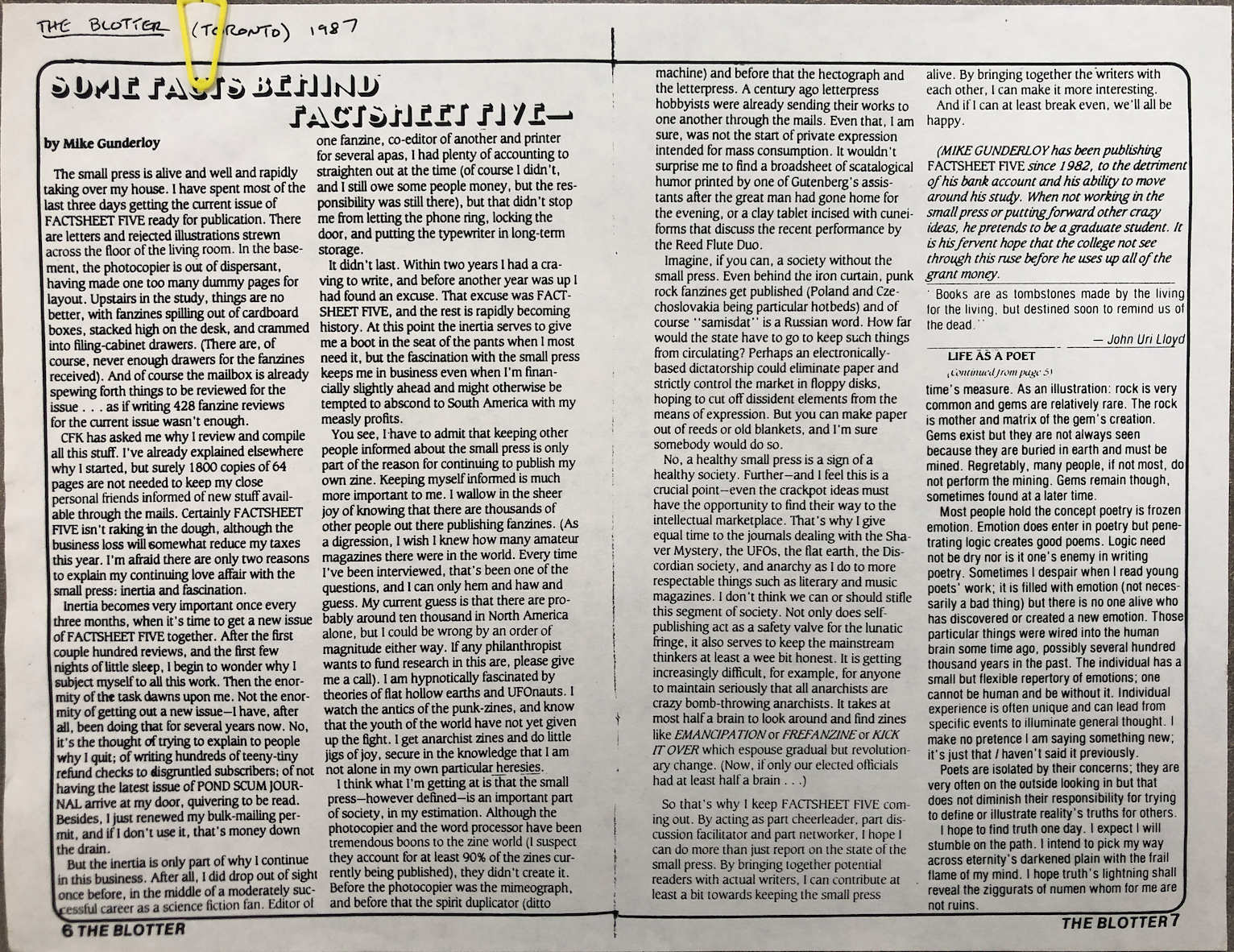Gunderloy would write and publish about his motives throughout his reign at F5 both within its pages and when he opined for others, such as he did in a 1987 issue of Toronto’s The Blotter, where he distilled his desire into two primary reasons: inertia and fascination. Of the former, Gunderloy described it as the “enormity of the task” — but not so much an inertia to circulate ideas as much as a fear of disappointing his fellow small press publishers if he quit, the enormity of having to explain it to them. He shared this slightly tongue-cheek, lamenting writing refund checks to zines like POND SCUM JOURNAL and wasting his bulk mailing rate renewal; yet the inertia felt palpable as Gunderloy described the state of his house as he prepped yet another magnanimous issue:

“There are letters and rejected illustrations strew across the floor of the living room. In the basement, the photocopier is out of dispersant, having made one too many dummy pages for layout. Upstairs in the study, things are no better, with fanzines spilling out of cardboard boxes, stacked high on the desk, and crammed into filing-cabinet drawers. (There are, of course, never enough drawers for the fanzines received). And of course the mailbox is already spewing forth things to be reviewed for the issue … as if writing 428 fanzine reviews for the current issue wasn’t enough.”
But really it was the second thing that drove Gunderloy to dedicate 90-100 hours per week to putting out F5: his fascination with the small press. After disclosing that he walked away from “a moderately successful career as a science fiction fan,” where he edited zines and printed APAs, his craving to write and publish ultimately led him back to F5.
This seems slightly revisionist, because as far as the archives demonstrate, Gunderloy not only read and wrote every single day, he published nearly every single day. In his perzine Accumulations (started in December 1978), for instance, he reflected on everything, from the deep to the mundane; regardless if he was ruminating on a new job in LA, detailing a trip to rendezvous with other sci-fi fans in NYC, or contemplating his relationships with his partner or roommates, whatever he was absorbing, Gunderloy was documenting as much of it as he could.

Introspection aside, he was open-minded, endlessly curious, and dedicated to the free press, and especially to the freedom of the small press. In his essay for The Blotter, Gunderloy describes his role as “part cheerleader, part discussion facilitator, part networker,” ultimately because he believed that:

“…a healthy small press is a sign of a healthy society. Further—and I feel this is a crucial point— even the crackpot ideas must have the opportunity to find their way to the intellectual marketplace. That’s why I give equal time to the journals dealing with the Shaver Mystery, the UFOs, the flat earth, the Discordian society, and anarchy as I do to more respectable things such as literary and music magazines. I don’t think we can or should stifle this segment of society. Not only does self-publishing act as a safety valve for the lunatic fringe, it also serves to keep the mainstream thinkers at least a wee bit honest.”
